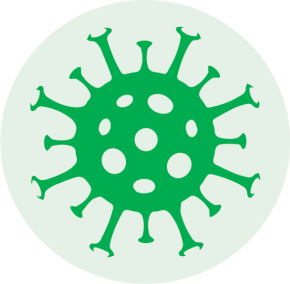

EDCTP portfolio: Emerging diseases
index


The BCG-COVID-RCT project is assessing whether revaccination with BCG protects healthcare workers from the worst effects of SARS-CoV-2.
Testing BCG vaccination to prevent COVID-19

BCG is used in many countries to prevent TB infections in children. However, BCG may have more generally stimulatory effects on the immune system, boosting early non-specific immune responses and enhancing protection against a range of infections. Notably, BCG vaccination is associated with reduced numbers of childhood infections, including respiratory infections.
Healthcare workers play a critical role in the response to COVID-19. However, their work puts them at increased risk of SARS-CoV-2 infections, and unrecognised infections may also contribute to the spread of infections in clinical settings. Healthcare workers currently account for up to 20% of COVID-19 cases in some countries.
The challenge

The RE-BCG-CoV-19 project aims to determine whether BCG revaccination of front-line health workers in three sub-Saharan African countries – Capo Verde, Guinea-Bissau and Mozambique – offers protection against COVID-19.
The project is organising a placebo-controlled trial involving 1,050 healthcare workers at clinical sites in the three countries who will be followed up for six months. Its principal outcome measure is the number of days that health care workers are not at work because they are unwell. Although complete BCG revaccination is unlikely to confer complete protection, the project team hypothesise that the numbers of days lost could be reduced by 20%, which would have a significant impact on healthcare delivery.
Data from the study will be pooled with that from ongoing studies of BCG vaccination in other locations, including high-income countries such as The Netherlands and Australia, to support a meta-analysis and to identify any differences in impact in low-resource settings with a high disease burden.
The project

The RE-BCG-CoV-19 project will rapidly generate data on the impact on COVID-19 of a safe, affordable and widely available intervention. Although BCG is unlikely to offer complete protection, it could have a significant impact on disease and be rapidly introduced to protect healthcare workers or other vulnerable populations, such as older people. As well as protecting healthcare workers, it would also ensure they could continue offering care to COVID-19 – an important outcome given the major health labour force shortages in sub-Saharan Africa.
In addition, evidence of a protective effect against COVID-19 would also support use of BCG revaccination as an early response to other infectious disease outbreaks.
Impact


“
test the safety and efficacy of this new formulation in young children
”
Bringing antiretroviral drugs to children

The CHAPAS trials have ensured that many more children with HIV have benefited
from life-saving antiretrovirals.
EDCTP portfolio: HIV & HIV-associated infections
The challenge
BCG is used in many countries to prevent TB infections in children. However, BCG may have more generally stimulatory effects on the immune system, boosting early non-specific immune responses and enhancing protection against a range of infections. Notably, BCG vaccination is associated with reduced numbers of childhood infections, including respiratory infections.
Healthcare workers play a critical role in the response to COVID-19. However, their work puts them at increased risk of SARS-CoV-2 infections, and unrecognised infections may also contribute to the spread of infections in clinical settings. Healthcare workers currently account for up to 20% of COVID-19 cases in some countries.

The RE-BCG-CoV-19 project aims to determine whether BCG revaccination of front-line health workers in three sub-Saharan African countries – Capo Verde, Guinea-Bissau and Mozambique – offers protection against COVID-19.
The project is organising a placebo-controlled trial involving 1,050 healthcare workers at clinical sites in the three countries who will be followed up for six months. Its principal outcome measure is the number of days that health care workers are not at work because they are unwell. Although complete BCG revaccination is unlikely to confer complete protection, the project team hypothesise that the numbers of days lost could be reduced by 20%, which would have a significant impact on healthcare delivery.
Data from the study will be pooled with that from ongoing studies of BCG vaccination in other locations, including high-income countries such as The Netherlands and Australia, to support a meta-analysis and to identify any differences in impact in low-resource settings with a high disease burden.
The project
The later CHAPAS-3 trial compared the efficacy and safety of three fixed-dose combinations including two without stavudine (found to have some long-term side effects in adults, leading to a recommendation that its use be discontinued in children). The trial the first of its kind in Africa studied nearly 500 children at four sites in two African countries.
The RE-BCG-CoV-19 project will rapidly generate data on the impact on COVID-19 of a safe, affordable and widely available intervention. Although BCG is unlikely to offer complete protection, it could have a significant impact on disease and be rapidly introduced to protect healthcare workers or other vulnerable populations, such as older people. As well as protecting healthcare workers, it would also ensure they could continue offering care to COVID-19 – an important outcome given the major health labour force shortages in sub-Saharan Africa.
In addition, evidence of a protective effect against COVID-19 would also support use of BCG revaccination as an early response to other infectious disease outbreaks.
ratios forfixed-dose combinations and on appropriatedosage according to weight.
The CHAPAS-3 trial confirmed the effectiveness of fixed-dose combinations, providing further impetus to the rollout of antiretrovirals to children. Its evidence on abacavir informed the WHO recommendation of abacavir-containing combinations for first-line therapy in children. Trial data have also been used to support applications for regulatory approval for new scored efavirenz tablets.
Impact
L’homme RF et al. Nevirapine, stavudine and lamivudine pharmacokinetics in African children on paediatric fixed-dose combination tablets. AIDS. 2008;22(5):557–65.
Mulenga V et al. Abacavir, zidovudine, or stavudine as paediatric tablets for African HIVinfected children (CHAPAS-3): an open-label, parallel-group, randomised controlled trial. Lancet Infect Dis. 2016;16(2):169–79.
WHO. Guidelines on the use of antiretroviral drugs for treating and preventing HIV infection: recommendations for a public health approach. 2010.
WHO. Consolidated guidelines on the use of antiretroviral drugs
for treating and preventing
HIV infection: Recommendations for a public health approach
(second edition). 2016
Projects: Children with HIV in Africa Pharmacokinetics and Adherence of Simple Antiretroviral Regimens (CHAPAS): CHAPAS-1 and -3
Project lead: Professor Chifumbe Chintu, University Teaching Hospital, Zambia (CHAPAS-1); Dr Veronica Mulenga, University Teaching Hospital, Zambia (CHAPAS-3)
Target population(s): Children with HIV
Sample size: 71 (CHAPAS-1); 480 (CHAPAS-3)
Countries involved: Ireland, the Netherlands, the UK, the USA, Zambia (CHAPAS-1); Uganda, Zambia (CHAPAS-3)
Project duration: 2005–2009 (CHAPAS-1); 2010 –2011 (CHAPAS-3)
EDCTP funding: €1.2M (CHAPAS-1); €4.6M (CHAPAS-3)
Total project funding: €1.2M (CHAPAS-1); €5.0M